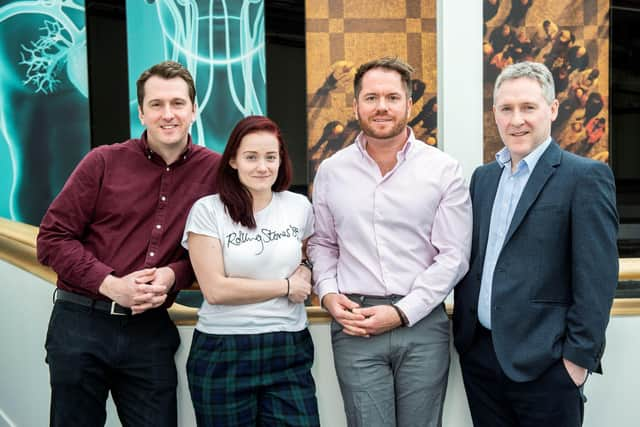Call for more funding of UK spin-outs at key stage - as Scottish model impresses
Parkwalk Advisors has commissioned research into equity investment into the UK spin-out sector over the past year, noting that activity in Scotland was high in 2020, driven by Scottish Enterprise
The latter was in fact the top investor in spin-outs by number of deals – at 38 out of the 371 equity transactions – and Parkwalk added that this points the way to a public/private co-investment model that could be effectively adopted on a greater scale across the UK.
Advertisement
Hide AdAdvertisement
Hide AdParkwalk, a specialist investor into university spin-outs, said it found that while there has been an increase in funding for such firms in 2020, there remains a “significant dearth” at later stages, in particular from UK investors.


This, it explained, could create major issues not just for UK plc, which benefits from such early-stage research and development (R&D), but also more broadly, restricting the impact the sector can have on the UK economy in terms of job-creation and growth.
Deals involving UK spin-outs accounted for 6 per cent of all deals in 2020. Parkwalk said that while this is a recovery from the low of 5 per cent in 2018 and 2019, it still “trails the highs” at the start of the 2010s.
Furthermore, while there has been a jump in funding for academic spin-outs, the bulk of the investment is focused in a limited number of companies – with fewer than 3 per cent of deals accounting for more than 40 per cent of capital invested. Over the last decade, half of investment in announced funding rounds into UK companies came from foreign investors.
Spin-outs from Scottish universities include Mime Technologies, which took root at the University of Aberdeen. It is behind technology that supports non-medical professionals during first response situations in remote environments. It last year received six-figure funding from the Early Stage Growth Challenge Fund, delivered by Scottish Enterprise on behalf of the Scottish Government.
There is also ClinSpec Diagnostics, which is behind a blood test that can provide early detection of cancer. The firm recently secured further investment of £1.1 million from parties including the University of Strathclyde (where it originated).
All in all, spin-outs from the University of Strathclyde secured 22 deals, with Edinburgh at 17, and both Dundee and Aberdeen at six – and Napier at five.
Unique
Moray Wright, co-founder and chief executive of Parkwalk, said: “The last year has shown the world the power of scientific research, and 2021 is going to be an important year in setting out the UK’s post-Brexit priorities.
Advertisement
Hide AdAdvertisement
Hide Ad“If the [UK] government genuinely wants to create a ‘scientific superpower’, it should look at how it can help create a sustainable financial ecosystem for this sector. A commitment from the government to increase R&D spending to £22 billion annually is a positive move, but there needs to be a financial ecosystem to support this grassroots investment if the UK is to produce leading global businesses.
"This report highlights how the government can assist in creating this ecosystem: activity north of the Border was high in 2020, driven by Scottish Enterprise, an entity funded by taxpayer money.”
A message from the Editor:
Thank you for reading this article. We're more reliant on your support than ever as the shift in consumer habits brought about by coronavirus impacts our advertisers.
If you haven't already, please consider supporting our trusted, fact-checked journalism by taking out a digital subscription.
Comments
Want to join the conversation? Please or to comment on this article.